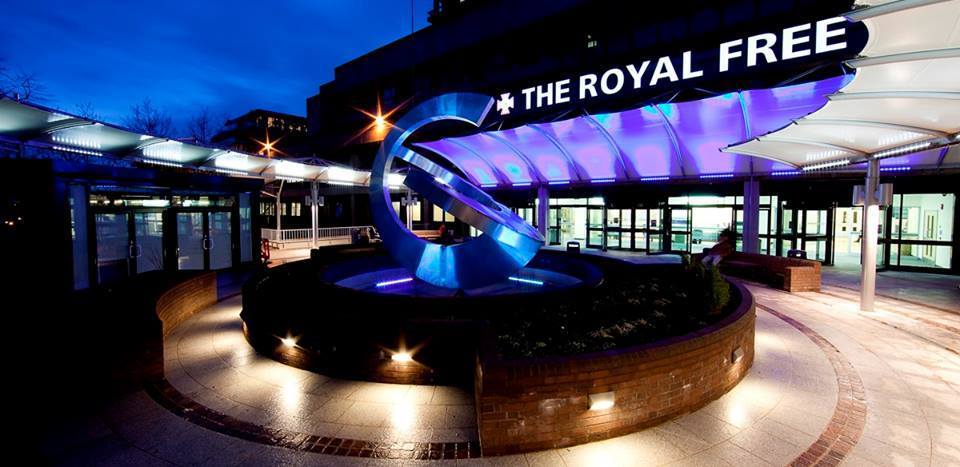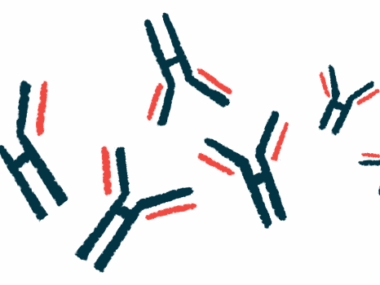Needed: Expert Specialist Scleroderma Centers
Written by |

Expert specialist centers are essential requirements in ensuring for the best care and treatment of scleroderma patients, as well as for the rare disease patient in general.
The experience, knowledge, and understanding of a medical specialist not only offers increased comfort to the patient, but the greatest likelihood of an early diagnosis, optimal care, and implementation of a best-care pathway.
An early diagnosis is crucial for scleroderma patients, in the hope that no life-threatening irreversible damage presents, and that treatment options still remain viable options.
I focused on the relevant diagnostic tests for scleroderma in Day 5 of my Scleroderma Awareness Month series — which ran throughout June. Click here to read it.
Day 6 of Scleroderma Awareness Month focused on the current ACR/EULAR scleroderma diagnosis guidelines. You can read that post here.
Expert Specialist Centers
Expert specialist centers offer a number of advantages to improve the rare disease patient experience, ranging from best care to the production of patient registries for research purposes, and to developing improved treatments and understanding of the disease’s cause.
Data collection can show commonalities seen in the patient population, providing an understanding as to disease progression, and a basis for research. These registries must, out of necessity to the rare disease patient, be a part of a global research network.
Exchange of best practices globally is paramount in rare diseases and scleroderma — where there is currently no cure and many unmet medical needs — to improve treatments and disease-modifying agents. Time is a luxury in the life of a rare disease patient — and particularly so for scleroderma patients.
The Journal of Scleroderma and Related Disorders (JSRD) was launched at the 4th Systemic Sclerosis World Congress in Lisbon earlier this year, hosted by the World Scleroderma Foundation. The 5th Systemic Sclerosis World Congress is to take place in Bordeaux, France, Feb. 15–17, 2018. For more information about the conference, click here.
The Journal of Scleroderma and Related Disorders is a most welcome addition to the global scientific scleroderma community as well as the global patient community, as its publications demonstrate the sharing and networking of scleroderma research worldwide. I focused on the JSRD a few months ago. To read the article, click here.
To read my article “Why global collaboration is so important,” click here.
Expert specialist centers also serve as a hub for patients to meet with others who are going through a similar experience, even though no two scleroderma patients present with the exact same set of symptoms.
These best-care centers provide an invaluable opportunity to share coping and management techniques, alleviating a little of the isolation experienced by patients.
The European Rare Diseases Organisation (EURORDIS) lists the following helpful criteria for the designation and evaluation of expert centers:
‘Each country to establish a procedure to define and approve designation criteria and a transparent designation process:
- Capacity to manage rare disease patients and provide expert advice; adhere to good practice guidelines for diagnosis and care
- Patient access to a multidisciplinary sea of experts (integrating medical, paramedical, psychological, and social needs)
- Assure quality of care, participation in internal and external quality schemes, propose quality of care indicators
- Proven expertise documented by annual volume of referrals, second opinions, publications, grants, teaching and training activities
- Participation in research activities, data collection, clinical trials if applicable
- Organisation of collaborations to assure the continuity of care between childhood, adolescence and adulthood, if relevant
- Organisation of collaborations to assure the continuity of care between all stages of the disease’
An empowered, educated scleroderma patient certainly makes for an easier scleroderma experience. An expert specialist center is at the nucleus of this. I focused on the Scleroderma patient Healthcare DreamTeam on Day 30 of Scleroderma Awareness Month. Click here to read the post.
I am eternally grateful to be a patient at the scleroderma unit at the Royal Free Hospital in London, headed up by Professor Christopher Denton. This world-class center of expertise, without a doubt, is a leading light globally in the scleroderma global research field. For more info, click here.
I know that the fact that I am still around and have now transformed myself into being a “scleroderma parrot” for the cause is attributed to the excellent healthcare and treatment that this expert center provides, as well as the superhuman medical expertise of Professor Denton.
This is why I have set up a Just Giving page for financial donations to go direct to the scleroderma unit research fund. All of my scleroderma awareness activities and efforts are voluntary on my part – I am not paid to do this!
To donate, please click on the link above or in the sidebar of this page, and a big Thank You to all of my fellow patients who have donated so far.
The grand total for Scleroderma Awareness Month raised £647.76 for research purposes — united, together globally, we will unlock the scleroderma code.
SOURCES:






